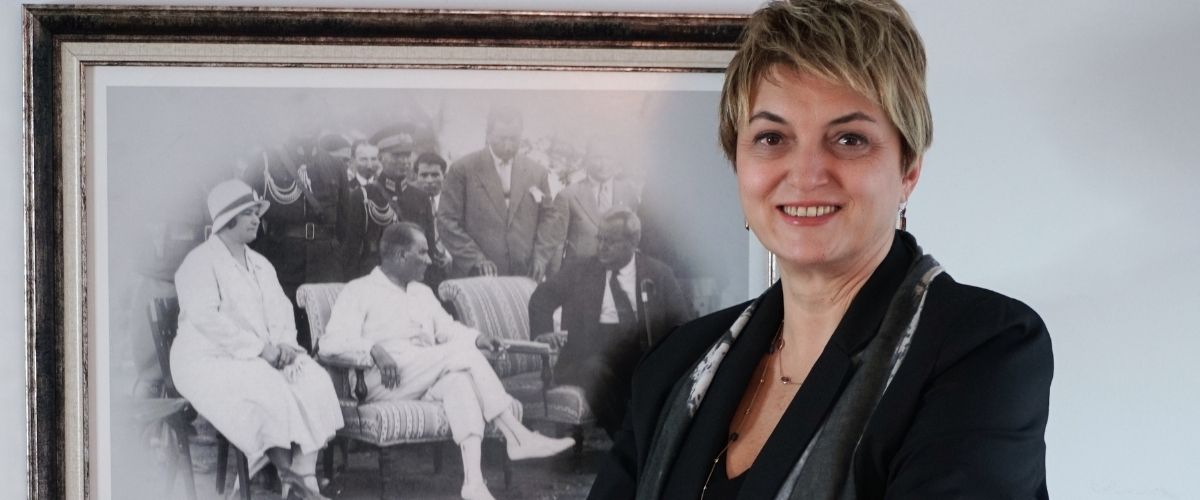Ara tatil sonrası okula dönüş: Çocukları nasıl destekleyebiliriz?
Altınbaş University Psychology Department faculty member Prof. Dr. Dilek Şirvanlı Özen evaluated the effects of the return to school process on children after the break and what parents and teachers can do to facilitate this process.
While the midterm break offers children the opportunity to rest and have fun, the process of returning to school can also bring some challenges.
Altınbaş University Psychology Department faculty member Prof. Dr. Dilek Şirvanlı Özen evaluated the effects of the back-to-school process on children and the strategies that parents and teachers can apply to facilitate this process. Prof. Dr. Dilek Şirvanlı Özen stated that adaptation to school after the holiday period can sometimes lead to emotional and cognitive reactions such as anxiety, loss of motivation and difficulty focusing. Stating that this adaptation process can become even more difficult, especially after long vacations, he made important warnings.
Difficulties encountered in returning to school
Prof. Dr. Dilek Şirvanlı Özen pointed out that the change in children's daily routines during the break may cause difficulties in adapting to returning to school. Prof. Dr. Şirvanlı Özen explained that the disruption of children's sleep and nutrition patterns during the holiday, the decrease in academic responsibilities and the increase in screen time are factors that make it difficult to adapt to school again, and said that this process can become more complicated, especially for introverted or sensitive children.
She listed what should be done to facilitate the school adaptation process as follows:
1. Reorganize daily routines:
To make it easier for children to adapt to the school pace, it is important to rearrange their sleeping and eating patterns according to school hours. Prof. Dr. Şirvanlı Özen states that gradually regulating the changing sleep habits during the holiday period will help balance the biological rhythm. Moving children's bedtimes 30 minutes earlier each night before returning to school after the holidays can speed up the adaptation process.
2. Clarify expectations by talking about school:
Encouraging students to share their thoughts and feelings about school is important to understand their concerns. Prof. Dr. Şirvanlı Özen emphasizes that conversations with children can be useful in this process. For example, during a family breakfast, children's feelings can be discussed with questions such as “How does going back to school tomorrow make you feel?”.
3. Support academic adaptation:
Students who stay away from academic responsibilities during the vacation may have difficulty returning to classes. Prof. Dr. Şirvanlı Özen suggests that this process can be facilitated with light repetition before starting school. In particular, preparing the school bag together and having a short preliminary conversation about the course topics to be covered during the week can increase students' academic focus.
4. Facilitate the social adjustment process:
Group activities should be encouraged for children who have difficulty readjusting to their circle of friends. Teachers' support for social interaction in the classroom can help students adapt quickly to school life. In particular, it is recommended that teachers organize short get-to-know-you games or group activities on Mondays to promote bonding among students.
5. Help manage anxiety:
The school process can cause anxiety in students. Prof. Dr. Şirvanlı Özen emphasizes the importance of parents and teachers understanding children's concerns and taking a solution-oriented approach without minimizing their anxiety. A reassuring attitude ensures that students approach the school process positively. To reduce anxiety, children can be reassured with sentences such as “Going to school may worry you, but we can make a plan together”.
6. Gradually reduce digital screen time:
Increased screen time during the holiday period can negatively affect students' ability to focus. Prof. Dr. Şirvanlı Özen states that gradually reducing screen time during the back-to-school period will support academic adaptation. Screen time can be limited for children and alternative habits such as playing board games as a family or reading books can be encouraged instead.
Prof. Dr. Dilek Şirvanlı Özen from Altınbaş University stated that the back-to-school process requires an emotional and cognitive reorganization for children and emphasized the importance of families and teachers being patient and supportive in this process.


